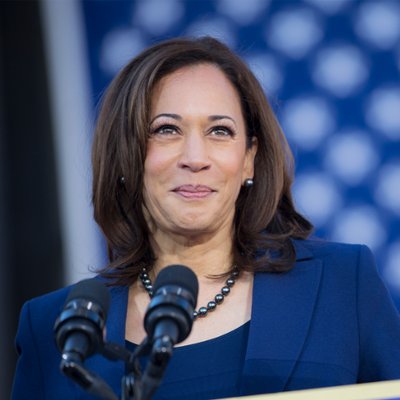The first face-off between former President Donald Trump and Vice President Kamala Harris in the run up to the 2024 elections did not much sway the voting predictions. In spite of the mainstream media’s favoritism towards Harris over her Republican challenger, the overall drift in the polls remained in a stagnant state. Despite the debate that took place on September 10, where she had initiated the race with an edge of slightly over one point as per RealClearPolitics’ polling average, the progress of Harris post-debate was merely nominal, reaching just under two points.
Leaning heavily on the allure of undecided voters had been the strategy of the vice president, yet neither the debate, nor Harris’ performance conjured a sizeable shift in attracting this key voting group. What unravelled instead was an equal and opposite reaction; various media outlets pointed out that Harris’ incessant jibes against Trump and failure to elaborate on her own policy plans left undecided voters wanting more content and less mudslinging.
Interestingly, Patrick Murray, the Director of The Polling Institute at Monmouth University, advised both contestants to focus on their bases, asserting that it would be of higher value considering the elevated public recognition of the candidates. Murray noted that mass media have a penchant for targeting undecided voters, however, more attention should be given to voters prone to apathy. His remarks direct the campaigns to consider those voters who have the political inclination but are unmotivated by the current political climate.
Categorizing these voters as younger citizens feeling left behind by the system, Murray elucidated that it is nearly impossible to figure out whose campaign would resonate more broadly among these disenchanted voters without deep insight into each campaign’s ground resources. Despite these insights, the mainstream continues to propagate the myth of the undecided voter’s overriding importance.
Bakari Sellers, a political commentator and former co-chair of Harris’s 2020 presidential campaign, also emphasized that Harris should be as concerned about getting voters to the polls as Trump. He opined that the vice president’s campaign has managed to mitigate that concern. However, he fails to mention that drawing an audience to the polling booth is a different beast altogether, and there is no guarantee that these voters will lean towards Harris.
In a rather hyperbolic conversation, Sellers described the current political race as ‘Kamala Harris vs. Donald Trump vs. the couch.’ His statements underscore the lounge-like attitude of potential voters during this electoral marathon, something that may not fare well for Harris. His dismissal of trending polls as inconsequential snapshots in time makes one ponder upon the credibility of these fixtures of modern-day politics.
An insider from the Democratic party, likely towing the party line on Harris, reinforced the narrative of a robust turnout in November, declaring “Just look at all those ‘double haters’ who were going to sit out of a Biden-Trump election. They’re now all backing Harris.” The claim, however, is unsubstantiated by evidence and seems fueled more by wishful thinking than concrete proof.
The Harris campaign, unsurprisingly, continues to assert that it is not taking any voter for granted. Gloating over their proud fundraising successes, the campaign has put forth an extensive strategy for key swing states to invigorate new supporters and furnish ongoing support from doubtful Democrats. Contrastingly, the Trump campaign chose to maintain a strategic silence, refraining from making buoyant assumptions.
Even though the polls suggest a supposedly less than impressive performance from Trump in the previous debate, Trump isn’t counted out from the race. Moreover, his team exudes strong confidence for an impending victory this November. Perhaps in a more realistic assessment of the situation, Trump pollsters Tony Fabrizio and Travis Tunis proposed that Trump and Harris were essentially at par prior to the debate.
In their view, Trump managed to claim a two-point national lead over the vice president in the aftermath of Tuesday’s debate. The narrative of a landslide victory scripted for Harris by the biased media was contradicted by flat support for her despite their best efforts. The only appreciable change was a small but visible advantage for President Trump.
This disparity between the media’s portrayal of the debate, and its actual effects on voters, serves as a reality check for the Harris camp. Voters clearly weren’t impressed by her shallow promises; instead, they failed to fall for the media’s misleading tales of Harris’ smooth sail to victory.
A rare consensus among two experienced Republican strategists with Trump campaign links hint towards an unlikely issue with Trump’s voter turnout. As one strategist opines, ‘Republican voters, at least over the last decade or so, are more dependable than the Democrats.’ Their anticipated presence allows Trump’s campaign to focus on traditionally non-Republican voter demographics, especially Black and Hispanic individuals.
In a strategic masterstroke, Trump may steer clear from any future debates with Harris. While this deprives Harris of a platform to awe her audience again, it helps cement his initial performance in the minds of his base, a memory that’s unlikely to improve positively if another debate was held.
Murray also chimes in with this analysis, stating that Trump’s tactic also depends on his hope that the debate, particularly his outlandish comments on unrelated matters, would simply fade from public memory – a trend that is not alien to Trump’s career in politics.
The battle now zones in on the crucial battleground states. Trump is geared to galvanize his supporters in Michigan and North Carolina, whereas Harris takes root in Pennsylvania. Regardless, the authenticity and relevance of the campaigns in these key territories remain the final determinants of their success in the upcoming elections.


